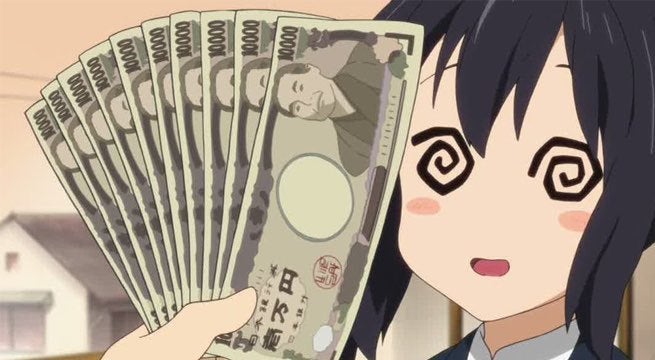
Workism is the belief that work is necessary for economic production and forms the center of your identity and purpose. It is the “belief that any policy to promote human welfare must always encourage more work (Thompson, 2019).” Japan’s work culture was influenced by the United States after World War II. The US has long had an unhealthy, even idolic view of work. Of all rich societies, Americans work longer hours, have shorter vacations, have less unemployment and disability benefits, have less retirement benefits, and retire later (Thompson, 2019). You’ve heard of karoshi, or death by overwork. Karoshi happens within a month of developing health and mental symptoms in 51% of cases. In the majority of those cases, the person doesn’t seek medical help. Karoshi is measured as those who work more than 80 hours of overtime per month. Americans often work at those levels or more.

For many people, their work is their identity. People put in the long hours because work is where they feel most themselves. Without their work, they don’t have a self. Psychologies call this problem enmeshment. Enmeshment is where boundaries between people blur and individual identities lose importance. This prevents the development of a stable, independent sense of self. Usually it happens between romantic partners or people with unhealthy relationships, such as an extreme otaku toward anime. But people can also enmesh with their careers (Koretz, 2019). I’m guilty of this to some extent. When I’m asked to introduce myself, I often say I am a writer and librarian. The am equates my identity with what I do. Of course, I can also add I am a Christian, I am a tea lover, I am a curious person, I am a technologist, I am heterosexual, and I am a bonsai killer. I beware the close identification of myself with a single facet of what I do or how I think. I am more than any single aspect. However, many people who fall into workism lose this multi-faceted view of their identity. Many people who fall into the current sexual identity discourse does this too. In fact, any singular facet of personality presents this danger. That is what weeaboo, otaku, incel, and others fall into. An identity is nothing more than a story we tell ourselves and others. It can be as simple or complex as we want. It can change. It can also be a self-deception.
Workism is understandable, however. Work culture rewards those who work longer hours with raises, prestige, and promotions. This unlocks a different socioeconomic social group which help define an identity. The loss of work through layoffs or business failures can shatter this socioeconomic association. You no longer have the income to attend charities, galas, or consume as your previous social group does. This creates depression, anxiety, drug use, loneliness, and suicide (Koretz, 2019). We are all reluctant to let go of the stories we tell ourselves.
Likewise, the stories culture tells us infect our perspectives. American culture sells the belief that work is supposed to lead to self-actualization: the realization of your human potential. In a Pew Research report, 95% of teens ranked “having a job or career they enjoy” higher than anything else, including altruism and marriage (Thompson, 2019). The work we do consumes the majority of our waking hours. It should be no surprise we expect it to fulfill us. Otherwise, those hours of our lives are in danger of feeling wasted. However, the harsh reality: labor serves the needs of consumers and business owners. It is not intended to allow workers to achieve a high state of contentment and meaning. Few can achieve work that leads to self-actualization. As with any exception, it is often held up as the rule, the example we should all attain. The push of workism will lead to “collective anxiety, mass disappointment, and inevitable burn out (Thompson, 2019).” We see this as part of Japan’s and the US’s suicide rate increases.
The Cure for Workism

In order to cure workism, we need to shift our perspectives and our consumption habits. Workism is idolatry. It uses work as a substitute for a spiritual system. You don’t need to be religious to be spiritual. Spirituality is anything that provides purpose and meaning. Of course, your work could do this. However, you need to beware the fallout for when your work ends. And it will. The purpose of money is to buy free time. And this free time is necessary to find purpose and meaning, to spend time with family, friends, and hobbies. We make the mistake of buying things, of spending up to and beyond our incomes. This habit steals time from ourselves. So on a financial front your need to (and you’ve heard it all before):
- Live below your means.
- Save and invest.
- Learn to be content with what you have.
The third point underpins the others. It’s hard to sacrifice. In fact, you shouldn’t sacrifice too much. You will eventually resent your financial plan. Learning to be content means you have to change your identity, the story you tell yourself and others. It may mean you no longer attend galas or charities because they are beyond your means. It may mean you no longer buy the newest fashions to keep up with your neighbors. It may mean you buy less anime and anime figures. However, in return, you will develop more financial security. With more security, you can work fewer hours and have more time to spend as you want to spend it. With enough practice, you won’t want many things. Money either buys you time or stuff. If you buy stuff, you pay in time. If you buy time, you pay in stuff.
Once you have more time, you can pursue your human potential. You can write more. You can take up a sport. You can travel. Then your money is put to better use than showing off on the social front or chasing the newest thing. Your identity will no longer be enmeshed with your work. Your work will be a means toward meaning. I like to write stories. I work and keep my spending low so I can afford editing, cover artists, and the like. I don’t expect my stories to pay for themselves (maybe one day I can make a living as an author!). My money is used to fund that which I enjoy. I forego having the fastest gaming PC or other cutting-edge technology. I used to buy a lot of that type of stuff, but it didn’t fulfill me as much as writing does. I aim to free my time to chase writing and all it involves.
Workism comes down to the stories we tell ourselves and others. It is a poor replacement for spiritual pursuits and a multi-faceted identity. It leaves us vulnerable to the whims of the market and of social groups instead of in control of our own lives. Financial stability is a necessity if you want to be in control of your own life. That means paying off debt. That means not buying the newest Apple product (unless you can truly afford it). That means having an emergency fund so if you don’t have work, you can still live just fine for a time. It means investing so your money can work for you, so your money can buy you time.
Do you worship work? Do you fall into the trap of consumerism and the trap of believing yourself a single-faceted person?
References
Koretz, Janna (2019) What Happens When Your Career Becomes Your Whole Identity. Harvard Business Review. https://hbr.org/amp/2019/12/what-happens-when-your-career-becomes-your-whole-identity
Moutier, Christinem Kennedy, Patrick (2019) The rate of suicides in the United States i gorwing- what can we do? World Economic Forum. https://www.weforum.org/agenda/2019/05/the-global-suicide-rate-is-growing-what-can-we-do/
Report Studies overwork-related suicides. (2020) NHK World https://www3.nhk.or.jp/nhkworld/en/news/20201030_14/.
Suicide by working-age men rises. (2020) NHK World. https://www3.nhk.or.jp/nhkworld/en/news/20201121_19/amp.html.
Thompson, Derek (2019) Workism is Making Americans Miserable. The Atlantic. https://www.theatlantic.com/ideas/archive/2019/02/religion-workism-making-americans-miserable/583441/




Your post was extremely timely I just saw an article on my news feed about how more are dying from suicide than from COVID in Japan in the last month.